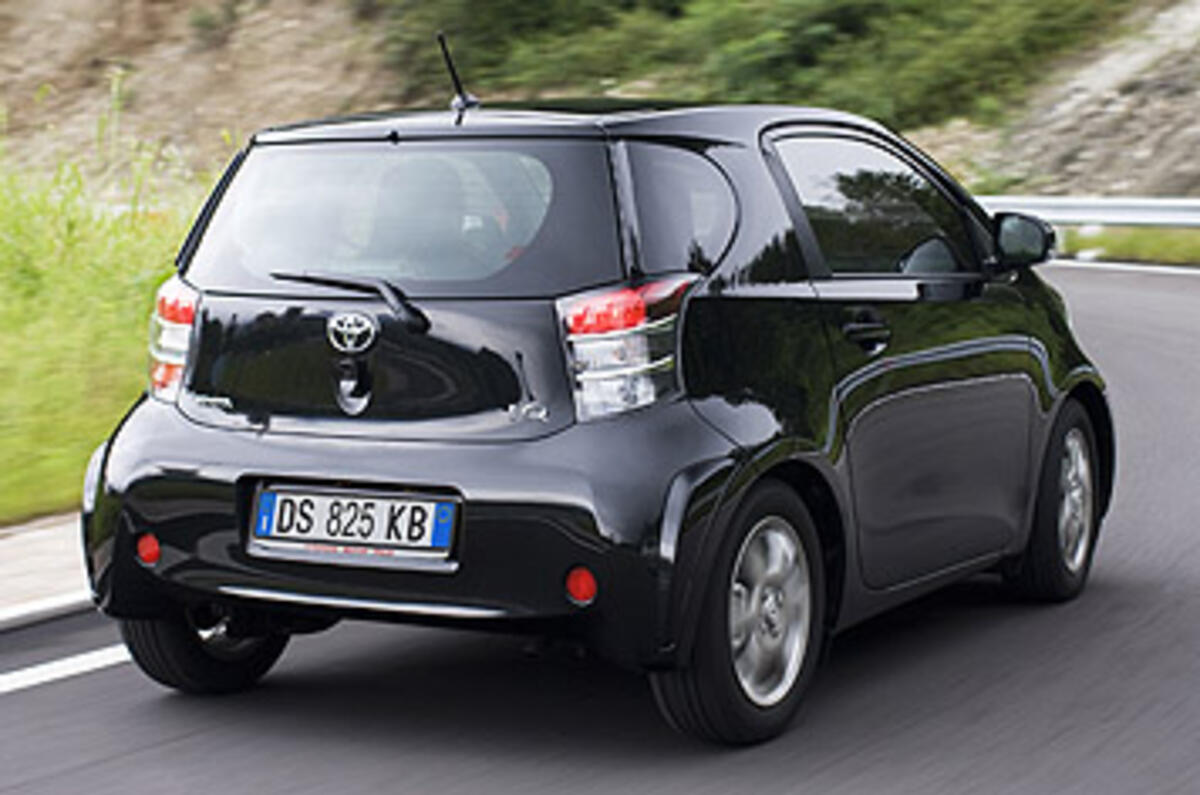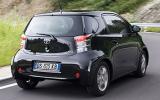What is it?
Toyota has just launched a bigger-engined version of its quirky ‘3+1’ city car, the iQ, with its 67bhp, three-cylinder 1.0-litre engine replaced by a 1.33-litre, 98bhp, four cylinder unit Toyota also uses in other economy models such as Auris and Verso.
The idea is to provide a bit more overtaking and open-roads ability for customers prepared to sacrifice some of the original iQ’s deeply impressive economy in exchange for considerably longer legs, a more conventional engine sound, about 12mph more top speed but remarkably little extra acceleration.
Toyota admit a large part of their motivation is to cater for people who don’t much like the beat of a three-cylinder engine.
What’s it like?
Very similar to the original iQ, really. Called the iQ3 in Britain, it does sound more conventional, and some say it rides a shade more stiffly. You get the higher equipment spec from the three-cylinder iQ2 plus a good-looking pair of 16-inch wheels and the more capable brakes from the already-launched 1.4 litre iQ diesel (not sold in Britain). The iQ3 is about 30 kilograms heavier than three-cylinder editons, and comes both with a six-speed manual gearbox and a CVT ‘automatic’ called Multidrive.
For both versions, you pay £1000 more than for an equal-spec iQ2 triple. For that, you get a car that’ll do 105mph instead of 93mph but its 0-60 mph time (manual) of 13.1 seconds is only about 0.7 seconds better than the smaller-engined car. The small margin is explained, at least partly, by the iQ3’s taller gearing: on the motorway it does slightly better than 25mph/1000 rpm in sixth.
The iQ3’s economy suffers, but not much. The manual’s combined figure of 58.9 mpg is around 6mpg below its cheaper sibling’s, while the CO2 output (113 gm/km), while good, looks a little shabby against the 1.0-litre’s 99gm/km.
As a driver’s car the iQ is definitely more stable, better handling and generally more ‘normal’ than a Smart, its most obvious rival in size, even if it’s quite a lot wider. But against more conventional small cars it pitches quite a bit and the ride quality is no better than par. You buy an iQ because you can truly utilise its unusual qualities
Should I buy one?
It comes down to how how much fast-roads cruising you want to do. The iQ3 is definitely more effortless on the open road, but it’s not much faster in the real world.
The CVT version is easier to drive than the manual, but its engine sets up a cruising drone many people will find annoying.
And then there’s the extra £1000 Toyota charges for a car with worse fuel mileage (and a smaller cruising range). Logic says that if you’re an iQ person — which means you understand and can utilise the unusual seating/loading layout — you’ll stick to the sweeter, cheaper, slightly more frugal and hardly slower three-cylinder version whose prices seem steep enough already.



















Join the debate
Add your comment
Re: Toyota iQ 1.33 3
I wonder if it has a limiter on and some bright spark might find a way of getting around it. I have had a few quick cars in my time. Ford Escort RS2000 Mk 1 100 BHP under 9 seconds to 60, Suzuki Swift 1.3 Gti 99 BHP under 9 seconds to 60, Daihatsu Charade Gtti 1.0 turbo 99 BHP under 8 seconds to 60 and Lotus Esprit S2 160 BHP just over 7 seconds to 60. Strange that a vehicle with 98 BHP does not have more performance.
Re: Toyota iQ 1.33 3
Toyota's brochure states that the 1.33 will do 0 - 62 mph in 11.8 Manual 11.6 Multidrive
Re: Toyota iQ 1.33 3
Yes I had the 1st Suzuki Swith 1.3 Gti and the Daihatsu Charade Gtti 1.0 Turbo. They were both fairly quick, the Gtti was under 8 seconds to 60 mph.